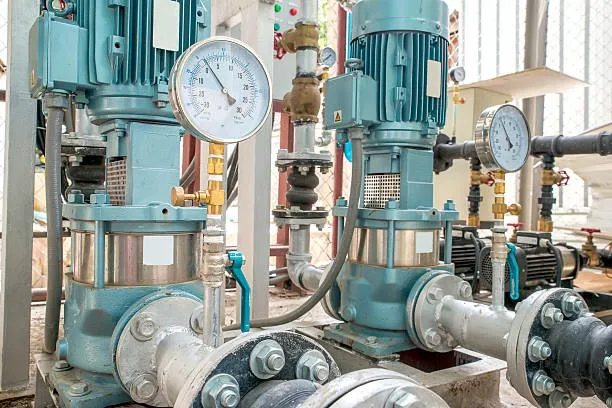
Boiler Maintenance in Quarryville, PA
Keeping your boiler well-maintained is one of the most effective ways to protect comfort, safety, and energy bills in Quarryville, PA. With cold Lancaster County winters, older homes with hydronic systems, and a mix of natural gas, oil, and propane-fired boilers across the area, routine boiler maintenance prevents midwinter breakdowns and preserves system life.
Why regular boiler maintenance matters in Quarryville, PA
Quarryville homeowners face seasonal temperature swings and often rely on hydronic heating through radiators or in-floor piping. Those conditions make boilers work hard for months at a time. Regular maintenance:
- Keeps the system running safely and efficiently during extended cold periods
- Reduces the risk of emergency repairs on the coldest days
- Preserves efficiency in older boilers common to Lancaster County homes
- Helps maintain warranty requirements and resale value
Common boiler maintenance issues in Quarryville, PA
Local climate and housing stock create a few recurring problems technicians see during service visits:
- Mineral buildup and scale on heat exchangers from hard water affecting efficiency
- Soot or combustion deposits in oil-fired burners that reduce heat transfer
- Low or fluctuating system pressure from slow leaks or failing expansion tanks
- Poor thermostat control or improperly calibrated controls causing uneven heat
- Blocked vents, condensate drain issues, or corroded flue components
- Air trapped in hydronic systems producing cold spots in radiators or zones
What professional boiler maintenance includes
A comprehensive maintenance visit focuses on safety, efficiency, and early detection of issues. Typical services performed during a boiler maintenance tune-up include:
- Visual safety inspection of boiler, piping, vents, and flue
- Cleaning burners and heat exchangers to restore proper combustion and heat transfer
- Combustion analysis and adjustment to verify safe and efficient fuel burn (gas, oil, or propane)
- Checking and calibrating controls, thermostats, and zone valves
- Inspecting and testing safety devices: pressure relief valve, low-water cutoff, and high-limit switches
- Flushing or checking condensate traps and drains on condensing boilers
- Checking boiler system pressure and topping off/adjusting expansion tanks
- Inspecting pumps, belts, and circulation components for wear
- Checking for leaks at valves, fittings, and radiators; tightening or recommending repairs
- Basic water-treatment assessment to reduce corrosion and scale risk
- Documentation of findings and maintenance recommendations
Each of these steps is performed in clear, non-technical terms so you understand the condition of your system and any recommended next steps.
Diagnostic process — what to expect during a visit
A typical maintenance visit follows a steady, safe process:
- Start with a safety shut-down and visual inspection for obvious issues.
- Run the boiler through a controlled cycle while measuring combustion and operating parameters.
- Clean accessible combustion and heat-transfer surfaces.
- Test and calibrate controls and safety devices.
- Recheck operation, pressure, and temperature to ensure the system returns to proper working condition.
- Provide a summary of findings, recommended repairs or adjustments, and recommended timeline for the next service.
Technicians will explain any safety concerns immediately and document items that should be addressed before the next heating season.
Recommended service frequency for Quarryville homes
- Standard recommendation: annual inspection and tune-up before the heating season (late summer to early fall).
- Older boilers, systems with persistent water-quality problems, or properties with heavy seasonal use may benefit from biannual visits.
- Homes with oil-fired boilers should include burner service annually and fuel nozzle/compressor checks as needed.
- Condensing boilers require attention to condensate traps and drain lines at least once per year.
Maintenance plans, discounts, and scheduling (what to look for)
Many local HVAC providers offer tiered maintenance plans that simplify the maintenance schedule and provide added perks. Typical plan features include:
- One-visit or two-visit annual options (single annual tune-up vs. fall and spring check)
- Priority scheduling during peak winter months for plan members
- Discounts on parts, labor, and system replacements for enrolled customers
- Filter or small-parts replacement included with each visit
- Written service records to support warranty claims and resale
When evaluating plans, confirm what each visit covers, whether combustion testing is included, and whether priority response is available during cold snaps. Aim to schedule maintenance in late summer or early fall so your system is ready before sustained cold arrives.
Benefits of timely boiler maintenance
Regular professional maintenance delivers measurable benefits:
- Improved fuel efficiency and lower monthly heating costs
- Fewer unplanned breakdowns and emergency service calls in winter
- Extended equipment life and delayed need for costly replacements
- Safer operation through verified combustion and functioning safety devices
- Better home comfort through balanced zones and reduced cold spots
- Documentation that supports warranty and home-sale disclosures
When maintenance shows that repair or replacement is needed
A maintenance visit can identify issues where repairs are the best course, or where replacement is more economical. Common signs that replacement should be considered:
- Repeated heat exchanger problems or evidence of cracking
- Frequent burner failures or expensive recurring repairs
- Efficiency well below modern equipment standards despite tune-ups
- Uneven heat that persists after proper system balancing and control checks
A technician can present repair vs. replacement comparisons, including expected lifespan and efficiency differences, to help with an informed decision.
Practical homeowner maintenance tips between professional visits
- Keep the boiler room free of clutter and combustibles for proper ventilation and safety.
- Monitor system pressure and temperatures; report sustained drops or spikes.
- Bleed radiators or zone piping to remove trapped air and restore heat distribution.
- Check for visible leaks around pipes and valves and address promptly.
- Replace or clean system filters on schedule if applicable.
- Ensure exterior vents and flues remain clear of debris, leaves, and snow.
Regular homeowner attention plus annual professional maintenance gives Quarryville homes dependable heating when it matters most.


Enjoy flexible financing options that make upgrading or repairing your HVAC system easy and budget-friendly.










